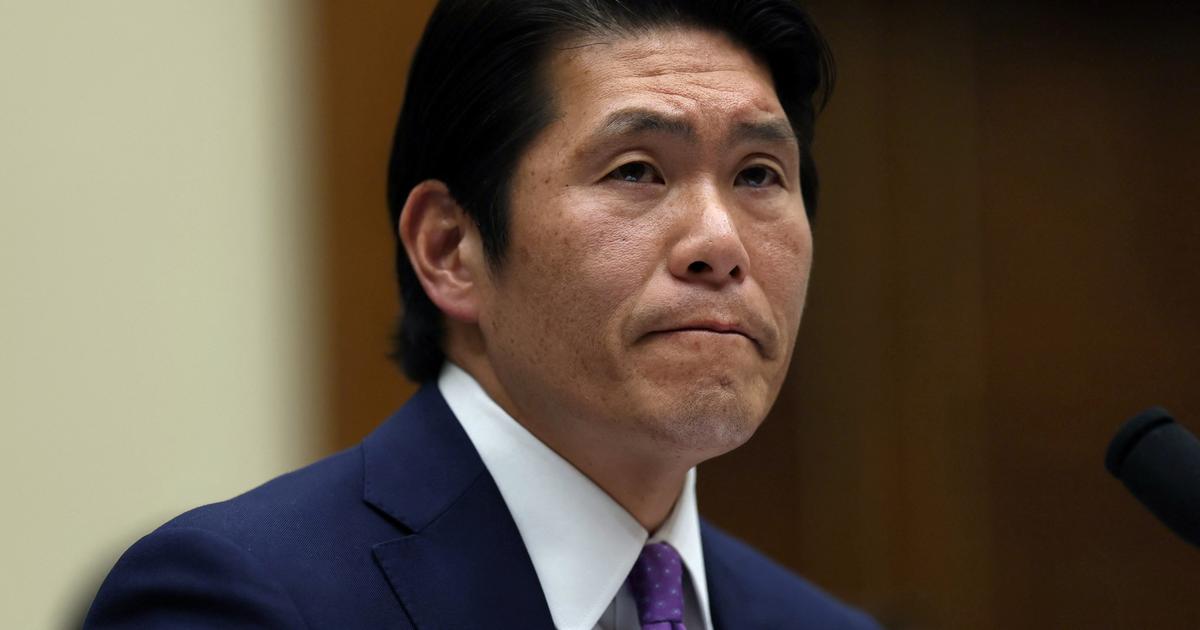The first thing that occurs to me is: what do we do with so many memes.
It's frivolous, like most of the first ideas, but after the world championship in Qatar, for those of us who have some link —whatever— with Argentina, the memory of the phone remains full of Messi memes like Che Guevara, Messi crossing the Arc de Triomf, Messi sleeping in a giant bed with his trophy like an emperor, yes, why not, like an emperor.
The second thing, also as a result of thought-meme, is the historical image.
The last time that a helicopter was so present in Buenos Aires before a crowd was when the President of the Republic, Fernando de La Rúa, left the Casa Rosada and he mandated it mounted on one, exactly 21 years ago.
The contrast is evident.
The crowd that celebrates, united, in front of the image as a metaphor for one of the biggest crises —of all kinds, leadership, economic, social— that a country experienced in itself, already in turmoil.
Let's not forget, speaking of memes: in a country that is the same headline due to hyperinflation, tension or football, one of the most popular is that of President Alberto Fernández, with a rueful gesture, with the legend: "What a It happened now, the fucking mother”.
Images of Argentines celebrating around the world also circulated, as if it were a delusional version of a
reality docu
.
Argentines celebrating in Berlin, in Mexico City, in Taiwan.
What a diaspora of images, this time of joy.
So different from other diasporas, said someone online, not without reason.
Even so, this text does not intend to reflect on soccer as an exercise in nostalgia, as a metaphor for Peronism, as a public expression of political malaise.
It would be obtuse or easy to understand the concentration after winning the World Cup in Buenos Aires, which was attended by millions of people, as a mere crisis of social representation.
Perhaps what it costs, today is to understand that people come together to celebrate, without more.
Who knows.
But let's get rid of the interpretation.
The images remain, over and over again, repeated, transmitted, incessant.
Never in the history of humanity have we consumed as many images as up to now, nor have we reproduced them with such speed.
As Harun Farocki said: "Change occurs, not when the screen appears to represent reality, but to recreate it through the digital image."
That's when the meaning changes.
As the artist pointed out in his work
Serious Games
, which explores how the US military uses video game technology to train troops for war and to treat the aftermath of war, the actual exercises on military bases gave the impression that it was reality that sought to resemble the game, and not the other way around.
Images, of course, create meaning.
Let us remember, as Georges Didi-Huberman did in
How to Open Your Eyes
in an Extreme Situation, that of the Czech activist Jan Palach, immolating himself in the bonzo style, in an act of protest against the Soviet invasion in 1968. In the last interview that Palach gave, he quoted as an example of civil liberty freedom of information.
Basically, he says that it is preferable to immolate oneself than to live dispossessed of the world, cut off from the indispensable “images of the world”.
As Didi-Huberman interprets: “Referring to the hell of totalitarianism, he addresses the world saying, 'Don't you see that we are burning to death, engulfed in flames?' And he turns this very address to the world into an image to be transmitted”.
In these days in which we hear incessantly about the evils of populism —with more or less success— and now that it is not necessary to literally immolate oneself to access these “images of the world”, what will remain of the images of these multitudes in our memory?
What will remain, in reality, of all the images of this century?
But I want to return to memory and representation.
A montage of the film Argentina 1985
circulates through networks
, now shortlisted to compete in the Oscars, where the actor Ricardo Darín and the prosecutor Julio Strassera, whom Darín interprets, are simultaneously giving the closing speech in the trial of the genocidal during the dictatorship Argentine military between 1976 and 1983. The montage of the images, in which the word occupies the central story, excites.
They tell me that thanks to the film, young and not-so-young people are learning about the trial of those responsible for massive human rights violations, right now, at a time when the ultra-right is gaining political representation in Argentina.
It occurs to me, in the face of so many words, that perhaps joy means that images can also be considered as education, as explicit memory, as a story.
In the face of any crisis of representation, perhaps we should strengthen our memory.
Before the extreme right, memory.
Before populism, too.
And perhaps thus be able to name the images as pride, and the word as responsibility.
Lucía Lijtmaer
is the author of the essay
Offended.
On the criminalization of the protest
and the novel
Cauterio
(both in Anagrama).
Subscribe to continue reading
Read without limits
Keep reading
I'm already a subscriber






/cloudfront-eu-central-1.images.arcpublishing.com/prisa/G5H4U6HTGYX2WLMKO43PJCX6DY.jpg)
/cloudfront-eu-central-1.images.arcpublishing.com/prisa/A7TA7NG2IQY37UJTVBF42LOB6I.jpg)

